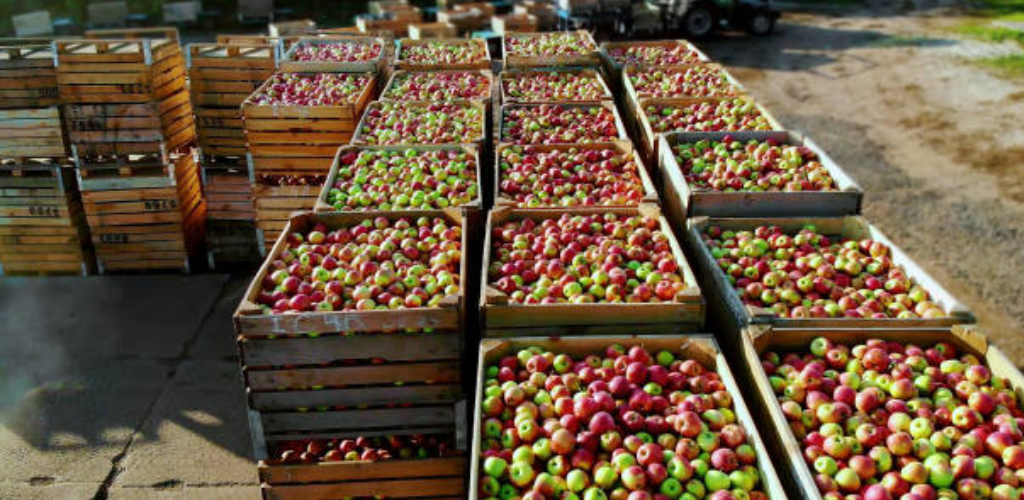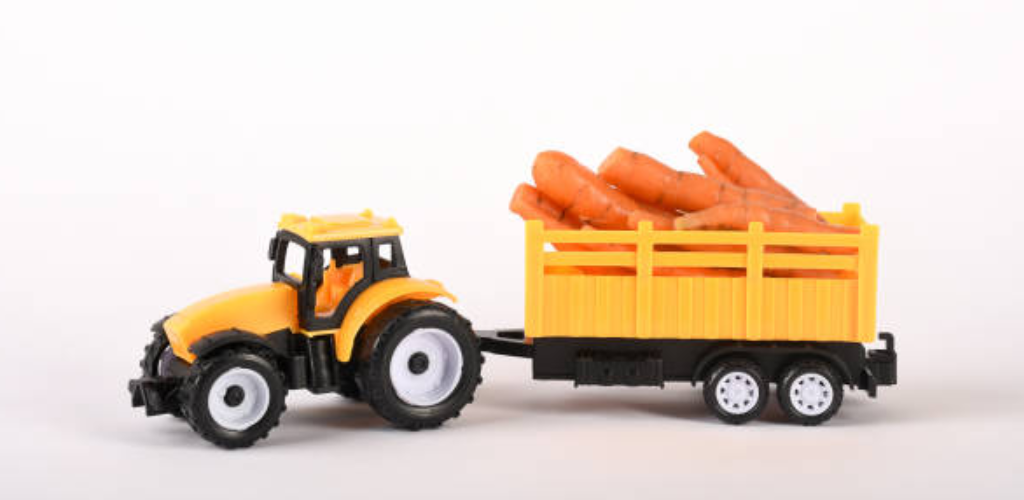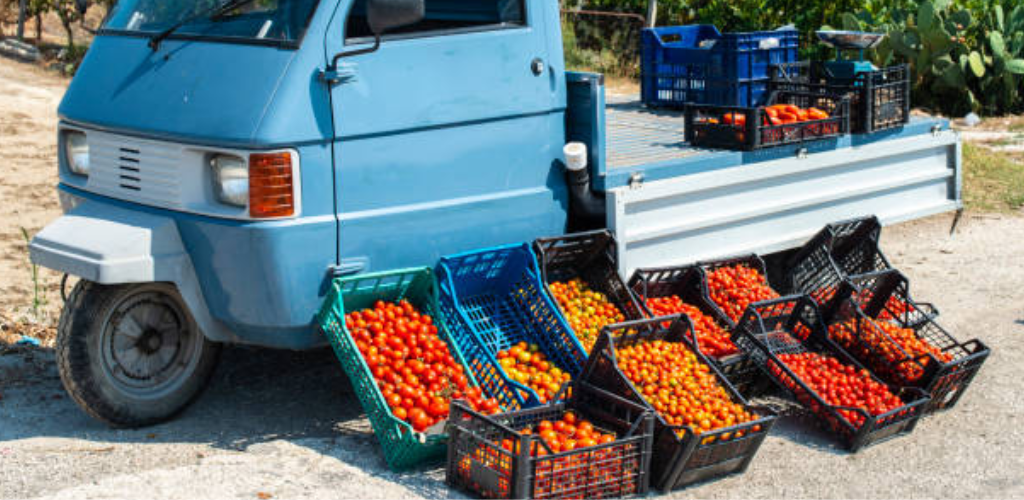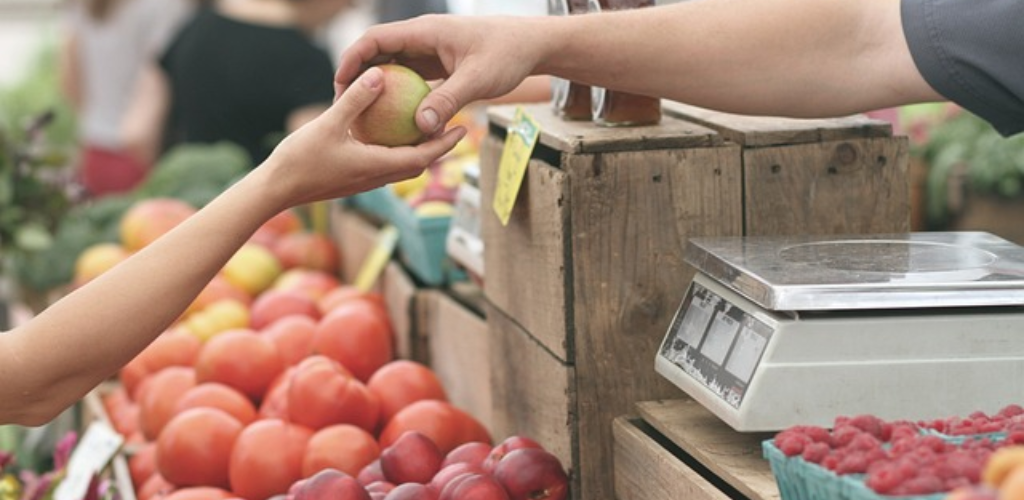The weight of a food trailer is one of the most important factors an individual needs to look out for when entering mobile food services. Whether towing it using a light-duty vehicle or a heavy unit, knowing the weight of your food trailer is important as it will assure you are choosing the right towing equipment that will not potentially land you in some legal or logistical trouble. This article is meant to consider an average range of weights of food trailers and factors that will influence a food trailer’s worth.
The weight of a food trailer is something one should consider as a primary criterion when buying one for their business. The weight of the food trailer will determine towing, maneuverability, and overall performance. This article should give you an idea of how much a food trailer weighs, and the contributing factors affecting that weight, whether you are buying one off the shelf or having it custom-made.
When purchasing a food trailer, one aspect to consider is the trailer weight. It is one of the things you should look for at the beginning when you want the trailer manufactured for your business. Weight affects towability and maneuverability, plus maximum trailers have quite a bit of equipment in them. Be it for a compact model for small operations or something bigger for some kiosks, knowing the weight is essential for safe towing, transportation, and offering quality performance. In this article, we’ll expound on the average weight of a food trailer and the elements that affect it.
Factors That Will Affect Weight; Food Trailer
The weight of a food truck can differ drastically based on some key factors. The size and design of the food trailer is one of those important features. Bigger trailers surely are going to weigh more because of their dimensions, not to mention the materials needed to build them. Further, the style and number of sections or compartments in the food trailer such as kitchens, storage areas, and serving windows will also contribute to its overall weight. A trailer that has been custom built with specialty parts or additions will often be heavier compared to a ready-made one.
Another factor that affects the weight of a food trailer is the equipment and appliances aboard it. The appliances include kitchen equipment such as ovens, grills, fryers, not to mention refrigerators, which can weigh a significant amount. Other contributing factors include the types of building materials used in the food trailers. Typically, different materials like steel and aluminum will vary in density. And the type of flooring, wall, and roof materials used can add or reduce weight. Knowing these factors will be very important in ensuring that you find the right food trailer for your business as you want both the trailer and the tow vehicle to match for safe operations.
Dimensions and Configuration

The size and design of a food trailer are the deciding factors adding to its weight. When compared to smaller food trailers, a larger one weighs in at least a few pounds more since it allocates a bigger space for cooking, storage, and service. In most cases, they’re going to weigh that bit more than their smaller counterparts because large food trucks have to make allowances for staff beings, customer interactions, and specialized kitchen equipment. For example, a small food trailer for a small business shall be lighter than a large, fully functional model for a demanding business.
Layout and design also add to food trailer weight. Multi-compartment trailers, additional windows for serving, or specialized areas for cooking and storage will all boost mass. Custom-built trailers, with owner-specific designs, will then usually need additional features such as extended serving counters, specialized cooking stations, or perhaps even a separate office space. Such design features increase the cost of construction and weight.
Finally, we cannot ignore the effect of the tilt of a food trailer-distance, mobility, and ease of maneuvering. The larger the trailer, the heavier it tends to be; hence it should have a more powerful towing vehicle. Besides loading, the design affects how easy or hard it is to maneuver in tight spaces like during events or in parking lots. Knowledge of these details makes it easy to choose the right food trailer suited to your business needs without compromising safety and function.
Materials Used in Construction

The materials applied in constructing the food trailer are essential in determining its weight. Steel, aluminum, and composites are normal materials for the construction of food trailers and extension features. Steel is heavy and very durable, which makes it an adequate food trailer intended for rigorous use. Aluminum is much lighter and rust-resistant, for which it is preferred by so many trailer builders to keep such trailers durable and yet easy to deal with without conceding much strength.
Their choice also informs the trailer’s aesthetics and functionality. For example, an aluminum trailer will be easier to tow and will consume less fuel than a steel-built, bulkier one. After considering some of the components of the trailer, e.g., insulation materials and interior finishes like stainless steel counters or custom flooring, you’ll also see those are all additions to weight. There are walls with insulation and roofs for a food trailer subjected to harsh weather; insulated walls and a sturdy roof are vital for such a situation, but they will add yet extra pounds.
Another factor is how such materials affect long-run maintenance and durability. An aluminum trailer is always much more resistant to corrosion, which is why food trailers based on aluminum are so often recorded to perform very well regardless of the weather. But steel is sometimes prone to rust; hence, additional coatings or care will be applied to minimize and delay this wear. Understanding how they influence weight will help you in the selection of a food trailer that meets your operational requirements while striking that balance between strength and towing with well-established ease and comfort.
Essentials Inside the Trailer
Many of the various devices and gadgets inside the food trailer lend it weight. Most commercial kitchen equipment, ovens, fryers, grills, and refrigerators, range from heavy to almost too heavy due to their steel frame and accompanying power mechanisms. For instance, a commercial standard deep fryer or a gas oven can again add several hundred pounds to the overall weight of the trailer. Although essential for any food trailer for preparation and service of delicate foods, these items weigh down the food trailer, seriously impeding towing and maneuverability.
Other issues and considerations for the trailer include sinks, counters, storage racks, and plumbing fixtures. Food trailers are usually equipped with heavy-duty stainless steel sinks and countertops, which add weight despite their durability. Furthermore, many trailers contain large storage spaces such as cabinets or refrigerators, which further adds weight. The more equipment is added, the heavier it becomes in weight, affecting both the ability to tow as well as the operational dynamics.
In designing a food trailer, attention should be paid to the weight of the equipment and appliances in relation to what the tow vehicle can support. Too much equipment could endanger not just the safe towing of the trailer but the safe and sure driving of the tow vehicle. A trailer that is too heavy might also be a hassle to park and maneuver at events or tight spaces. Hence, it between the two, the rest of the equipment need to be carefully chosen to ensure that the weight is manageable for safe and comfortable operation.
What Is the Average Weight of a Food Trailer?
The average weight of food trailers usually ranges from 2,000 to 8,000 lbs or between 1,000 kg and 3,600 kg depending on size, model, and equipment inside. Smaller food trailers will weigh roughly 2,000 to 3,000 pounds, whereas larger fully equipped food trailers designed for extensive food preparation and high-volume service can weigh between 6,000 and 8,000 pounds and heavier. Generally speaking, the size and the capacity of the trailer determine how much weight it can carry, which is why it is important to choose one that will meet the needs of your business while taking into consideration the vehicle’s towing capacity.
Individual customizations will affect the weight of a food trailer. For instance, food trailers constructed from lighter materials, such as aluminum, will weigh less than those made of heavier steel. The appliances and fixtures inside, such as ovens, refrigerators, and sinks, also contribute to the overall weight. Take all of this into consideration when contemplating the average food trailer weight since it is important to factor in such details to avoid exceeding the towing capacity of your vehicle, rendering your trailer overloaded, which can have an impact party aesthetically and safekeeping-wise.
Small vs. Large Food Trailers

The major differences are size, form, functionalities, and weight. Over its smaller counterpart, it just goes over the 2,500-pound mark and is obviously meant for less demanding functions like snacks, drinks, or serving quickers. By virtue of their smaller size, they are very portable, easy to maneuver through small locations. The common standard for small food trailers is basic kitchen gear like stoves, sinks, and refrig; basically, just enough so that it remains light yet works well enough as a mobile food business.
In contrast, big food trailers can weigh anywhere from 6,000 pounds to 8,000 pounds, depending on the size and cooking equipment. These are designed for high-volume food serving and always come with fully-equipped kitchens, multiple cooking stations, refrigeration, and larger storage. Although large food trailers are built to provide storage and room for an array of menu offerings, they require more robust vehicles in order to serve as towing as well, and they can be harder to maneuver in crowded areas or at events. Knowing the distinction between small and large food trailers enables business operators to choose a food trailer that fits their operations with respect to weight, capacity, and towing specifications.
Weight Ranges for Types of Food Trailers

The weight range of any food trailer depends on the type and features provided. A basic food trailer typically weighs between 2,000 and 3,500 pounds. These are smaller food trailers used for light duty operations-the serving of simple items such as coffee, ice cream, or hot dogs. Since such food trailers don’t have a lot of kitchen equipment, it makes pulling them quite easy. This is why new food entrepreneurs or those having weak towing vehicles will prefer such food trailers.
On the other hand, a full-service food trailer can weigh anywhere from 5,000 to 8,000 pounds or even more. These trailers have state-of-the-art kitchen appliances such as ovens, fryers, grills, and refrigeration systems to serve several types of businesses with a broad array of items hot and freshly cooked. The extra weight comes from these appliances and the durable materials used to construct them and their larger size. Knowing the average weight range of various types of food trailers helps a business owner to recognize the needs of his or her business and match its towing capabilities to the proper size trailer.
Food Trailer vs. Concession Trailer: The Real Difference in Weight
Most of the time, food trailers and concession trailers seem to be interchangeable, though in reality, they are entirely different in their constructions, which in turn affects their weight. Typically, they cook food and serve the food in a food trailer, usually with a complete kitchen system and equipped with appliances like grills, fryers, and refrigerators. They can be in various sizes and weight. In general, such trailers are massively heavier when it comes to high-volume operations. The average weight of a food trailer ranges from 2,500 to 8,000 pounds, depending on size, materials, and appliances.
Generally speaking, unlike food trailers, concession trailers are designed for lighter functions, such as pre-packaged food or drinks serving. Often, concession trailers are lighter than full-service food trailers, with weights of between 2,000 and 4,000 pounds. Their simpler construction and fewer appliances inside render these trailers much easier to tow. Knowing the difference in weight between a food trailer and a concession trailer helps a businessman to choose an option that best fits his operational expectations and towing capacity.
Food Trailers vs. Concession Trailers

Though both food and concession trailers are mobile carrier units selling food, the principal difference lies in their utility and complexity. A food trailer is equipped fully with the kitchen features-a deep fryer, an oven, a grill, and chilled storage, making it operationally capable of delivering a wide variety of hot and freshly prepared meals. They are mainly designed to provide adequate space for cooking, food preparation, and storage, to be an all-in-one option for businesses that require an advanced food operation.
Concession trailers on the other hand, are usually more streamlined and built around one specific type of food concession-such as snacks, drinks, or pre-packaged items. They usually have fewer cooking appliances. Their menu might just revolve around serving popcorn, cotton candy, or drinks. The design of concession trailers tends to be fairly minimalistic, which helps with maneuverability and basic maintenance. A firm grasp of these differences allows the owners to choose the best option that suits them with respect to the food served and the complexity of the operations.
Considerations Regarding Weight for Both Options

Upon examination, it seems that food trailers for a given length will weigh in heavier than concession trailers owing to their more accommodating size. Food trailers’ weight is expected to range between 2,500 and 8,000 pounds, depending on dimensions, materials, and kitchen appliances. Additional blood weighs in heavier with regard to the automobile’s volume food operations; therefore, food will generally be heavier. Moreover, they, of necessity, demand tow trucks of carry weight. The business people must ensure their towing vehicle will carry weight comparable to that of the food trailer, particularly since heavy kitchen equipment must be attached.
However, concession trailers will most often weigh lighter than that. On average, they weigh between 2,000 and 4,000 pounds. With their more simplistic design and reduced appliance count, concession trailers are easier to tow and maneuver. This lighter weight could also be an advantage for food businesses where a full kitchen is not required or to save on towing and maintenance costs. Yet, one ought to match the weight of that concession trailer with a suitable towing vehicle to provide proper safety and practicality.
Purchasing a Used Trailer for Food
A used food trailer for sale comes with its advantages, but there are also some elements of risk involved. A used food trailer will save you money compared to a new one, allowing you to invest in equipment or marketing for your business. However, when you are buying a used food trailer, it is crucial to check the condition of the trailer closely. Inspect for wear-and-tear, rust, or frame damages, along with the condition of vital components: kitchen appliances; plumbing; and electrical systems. If maintained, a used food trailer can be a great bargain, but due diligence is important to ensure it is a sound investment.
An advantage of the used food trailer for sale is that many trailers come already outfitted with equipment, saving the cost of outfitting the trailer yourself. Certain used food trailers also allow for customizing; options for the layout can be modified to suit your business needs or specific appliances may be advanced. Making an honest inquiry about the history of the trailer, determining if there are issues with its health regulation compliance, is essential. Given a maintained-used food trailer, a buyer sets themselves up to launch their mobile food business deliberately.
Benefits and Drawbacks of Buying a Used Trailer

The primary benefit of buying a used food trailer is cost savings. Used trailers typically cost a fraction of what a new food truck would cost, making it financially advantageous for new food entrepreneurs and those on a tighter budget. It’s a hit-or-miss situation for a new trailer owner because many used food trailers will have essential equipment such as refrigerators, stoves, and sinks already. The powerful feeling that the trailer is “road proven” might incubate some confidence during this time, provided the previous owner took care of it.
While purchasing used food trailers can be advantageous, certain factors must be considered. Older trailers are known to have some wear and tear, and there’s always the risk of hidden troubles like rust, faulty wiring, or outdated appliances. Such problems might not only be costly repair-wise but also affect the overall use and functionality of the trailer. It is important to weigh the condition of a used food trailer before buying, taking into account possible renovation or repair costs. While this is sure to save money on the purchase, ongoing maintenance costs incurred with a used food trailer would impact the long-range budget.
How to Determine the Condition and Weight of a Used Food Trailer

The condition of the food trailer must be examined properly inside-out before properly assessing its worth. The structure and framework integrity must be investigated for signs of rust, cracks, or other structural integrity issues. Check the floor, roof, and all the walls for wear and tear that might affect their durability. Once you’ve got a handle on the outside, go inside, and check the kitchen kitchen equipment, plumbing, and electrical systems to see that they are all working properly. If you can, request maintenance records from the seller, and don’t hesitate to inquire about repairs or a history with any specific issues the trailer has had. This will give you an idea of what to look for and what cost you might incur later when running the business.
Used food trailers need serious consideration regarding their weight for towing capability and vehicle compatibility. Make sure you check weight specifications from the manufacturer, includiNg any added weight from appliances or upgrades towards their total weight. Overloading your towing vehicle can cause safety issues and premature wear and tear. If you are buying a used food trailer, make sure its weight is in line with the towing capacity of your vehicle, and also that the overall weight is manageable for what you intend to use it for. Assessments of the condition and weight of the trailer might confirm that you’re making a good choice for the investment in your food business.
Bonus: A Health Food Store Making Its Own Trail Mix–Could It Fit Your Food Business?
It could be a great way for a health food store to reach out, offering fresh, custom-made snacks such as trail mix directly to the customers through a food trailer. This also creates opportunities for placing a mobile platform for healthy options in farmers’ markets, events, or hot traffic areas. A food trailer would allow a health food store making its own trail mix to have a definite awesome space to create and sell diverse mixes on-site while allowing customers to mix in their own ingredients or choose from pre-made options. This mobile setup allows businesses to capture new markets without the overhead costs usually associated with opening a brick-and-mortar location.
It would also allow your food trailer more flexibility in location, taking your health food business into several communities, festivals, and wellness events. You could power the trailer for informing customers about the nutritional benefits of your trail mix and other healthy snacks, while building brand recognition alongside offering an “on-the-spot” unique hands-on experience. A food trailer could greatly increase visibility and opportunities for growth for your business all while keeping overhead very reasonable. An active way a food trailer could continue its business would be selling pre-made packs or crafting custom mixes that customers can create right on-site.
Can a Food Trailer Be Used for Health Food or Specialized Offerings?

Absolutely! A food trailer can provide an excellent platform for selling health food or specialized offerings. The food trailer’s mobility allows health-conscious establishments all the freedom to access larger audiences by bringing fresh, nutritious meals, snacks, and beverages directly to customers at farmers’ markets, festivals, or high-traffic areas. Perhaps you choose the fresh smoothies, the vegan bowls, or gluten-free snacks, or even organic meals, all of them locally sourced. A food trailer grants you the flexibility to mess about with the creation of functional offerings targeting your niche market while sticking to your brand focus on health and quality ingredients.
Furthermore, a food trailer allows the freedom to customize the menu according to specific customer preferences. A specialized offerings business-building for keto, paleo, or plant-based diets, a food trailer may serve as an introduction of your rationale directly to those communities. A trailer can be designed with the right equipment to create and serve fresh, nutrition-oriented meals on the go. Customers can be engaged, educated about your offerings, and afforded an easy, mobile experience, which helps cultivate expanded loyalty and a dedicated fanbase.
Bottom line: Key Takeaways on Food Trailer Weight
To sum up, figuring out the weight of a food trailer matters in selecting the right one for your business. The weight of a trailer will determine not only its effectiveness in carrying equipment and supplies, but also the safe towing of such a trailer. The weight of food trailers can vary widely based on their size, design, materials, and the appliances in them. Smaller food trailers might weigh literally as little as 2,000 pounds, while larger ones, equipped to the hilt, could weigh in excess of 8,000 pounds. It is vital, then, to ensure proper matching of your food trailer’s weight to the vehicle’s towing capacity for a more trouble-free and safe operation.
Further, it is important to consider how the weight may interact with operational factors when shopping for food trailer space. Heavier food trailers may afford you bigger cooking areas and equipment, but they will engage heavyweight vehicles for tow and maneuvering. Even so, lighter trailer units may be easier to tow and navigate through tight corners but will not offer the amount of space required for a large foodservice and production. When you earnestly evaluate weight and how it affects your business processes and towing logistics, then you’re in a better place to choose that food trailer best suited for your mobile food business.
One final note: a good towing mechanism for food trailers ensures that you are on the road with minimal trouble while running your food business.
Safe towing is not only about the safety of your business but also about the longevity of your trailer and its towing vehicle. Before you hit the road, make sure that your vehicle’s towing capacity is compatible with the weight of your food trailer for safe towing. Overloading your vehicle is dangerous, and it could lead to failure of brakes, steering problems, or tire blowouts. It is advisable to regularly check the food trailer and tow vehicle to make sure they align properly, the lights are functioning properly, and the trailer is properly hitched to avoid accidents and road troubles.
Additionally, keeping your food trailer light will not only enhance towing safety but will also make a huge difference in the outcome of your food business. Safety checks can include checking tires, brakes, and checking equipment in your kitchen prior to service to minimize the risk of unexpected breakdown. Your investment in safety towing procedures and basic maintenance guarantees a smoothly running trailer, thereby increasing the chance for your business to thrive. Whether serving at a quaint festival spot or traveling to a fresher spot, these actions will poise for a successful and long-lasting food trailer operation.





Pingback: Save Big with Key Food Circular This Week -